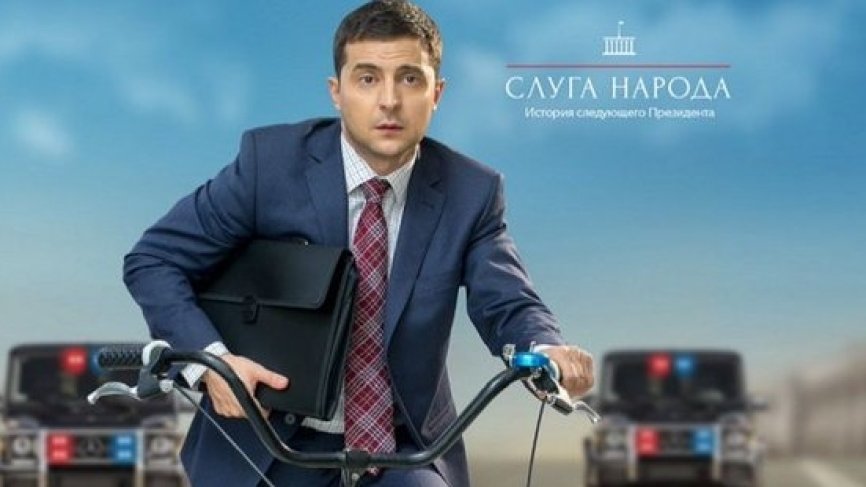
Cue in the Twitter hot-takes in which Ukrainians elected themselves “a TV show star” with “no political experience”. Relax, not all TV stars are racist ignoramuses who want wall and try to spoon state flags. Despite winning the elections with a whopping 73% (and beating his own onscreen presidential score in his hit TV show), this one is different.
Zelensky in fact does not have much political experience, apart from playing a concerned citizen on TV and voicing the fatigue of the electorate in an obscenity-filled monologue on the never-ending vicious circle of corruption in Ukrainian politics. He did run a remarkably successful campaign that culminated at the Olympic stadium in Kyiv where he successfully debated President Poroshenko. Zelensky’s unexpected election confirms several things. Firstly, it shows that Ukrainians are tired of the fact that despite having a rich President they remain one of the poorest European countries; they are tired of corruption and the abysmal state of healthcare (“how can you think of something that we don’t even have?” – to quote a joke from “Servant of the People”); they are tired of existing elites that talk and steal (the original Russian slang here is has a beautiful alliteration). Secondly, Zelensky’s more conciliatory tone about the military conflict in the South-East was refreshing after a constant barrage of militaristic rhetoric and the continued disregard for the South-East, portraying the region merely as Russian stooges. Despite Russian support to the separatists, it has become clear that there are Russian-speaking Ukrainians who have genuine grievances and concerns whipped into a frenzy by Russian mainstream TV channels.
Speaking of which, the Russian media had low expectations for the elections in Ukraine. Poroshenko’s slogan “army, language, faith” was supposed to appeal to the imagined Ukrainian electorate as depicted by Russian TV: neo-fascist nationalist thugs trying to siphon off assents of the Russian Orthodox Church. Poroshenko’s emphasis on militaristic public events – appearing in military uniform, attending exhibits of weaponry and even putting army as one of the most important features of the country was heaven rained manna for Russia’s mainstream media. When the Ukrainian Orthodox Church was granted autocephaly (Tomos), pro-Kremlin pundits saw in it a purely political decision that was supposed to guarantee Poroshenko’s re-election. On social networks, people disregarded the spiritual meaning of the autocephalous status and instead discussed Tomos as an “electorate excitement tool” intended to ensure Poroshenko’s first-round win in the presidential elections. Moreover, Poroshenko’s recent initiative to outlaw languages other than Ukrainian in the public space – effectively rendering most of Zelensky’s oeuvre illegal – seemed to have been dead in the water for people who can laugh at jokes in Russian if they are funny.
One of the most important accomplishments of the Ukrainian election is the fact that it took place and ensured a democratic vote. Moreover, it showed that the “neo-fascist” image of Ukrainians created on mainstream Russian TV was a complete fabrication. Zelensky gained support all over the country even in the Western parts that are traditionally much more nationalist, becoming the first Jewish President in a country supposedly anti-Semitic to its core. Ukrainians have given Zelensky an opportunity to radically change the system and become a true “Servant of the People” – an honest, dedicated President for all.
Time will tell whether life imitates art.
Elizaveta Gaufman is Assistant Professor of Russian Discourse and Politics at the University of Groningen, the Netherlands. She is the author of "Everyday Foreign Policy: Performing and Consuming the Russian Nation after Crimea" (2023) and "The Trump Carnival: Populism, Transgression and the Far Right" (2024).


0 Comments